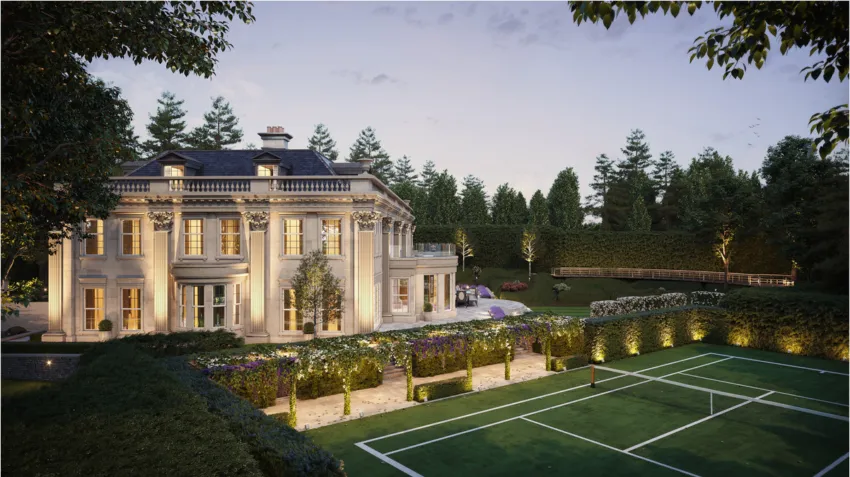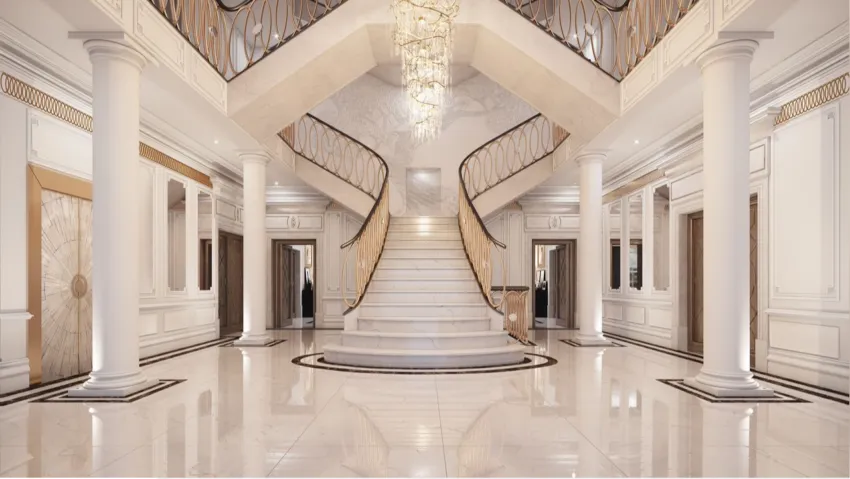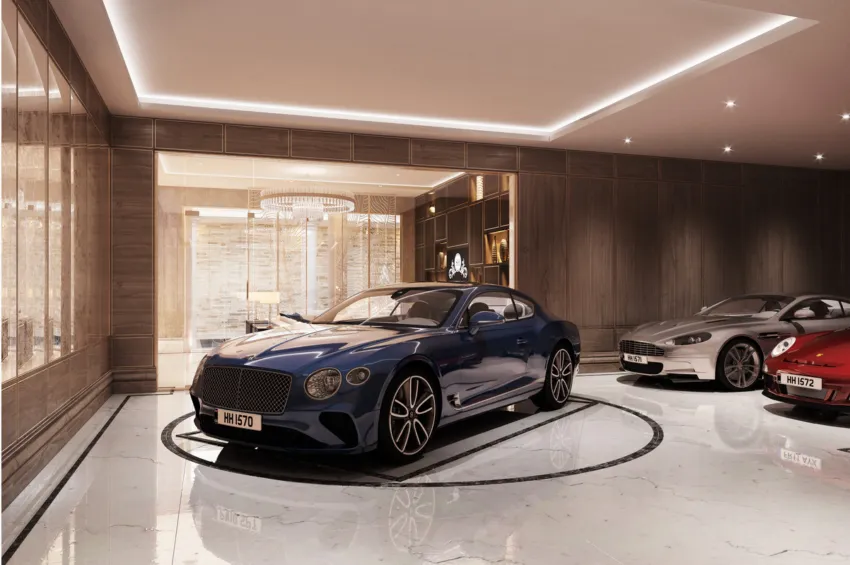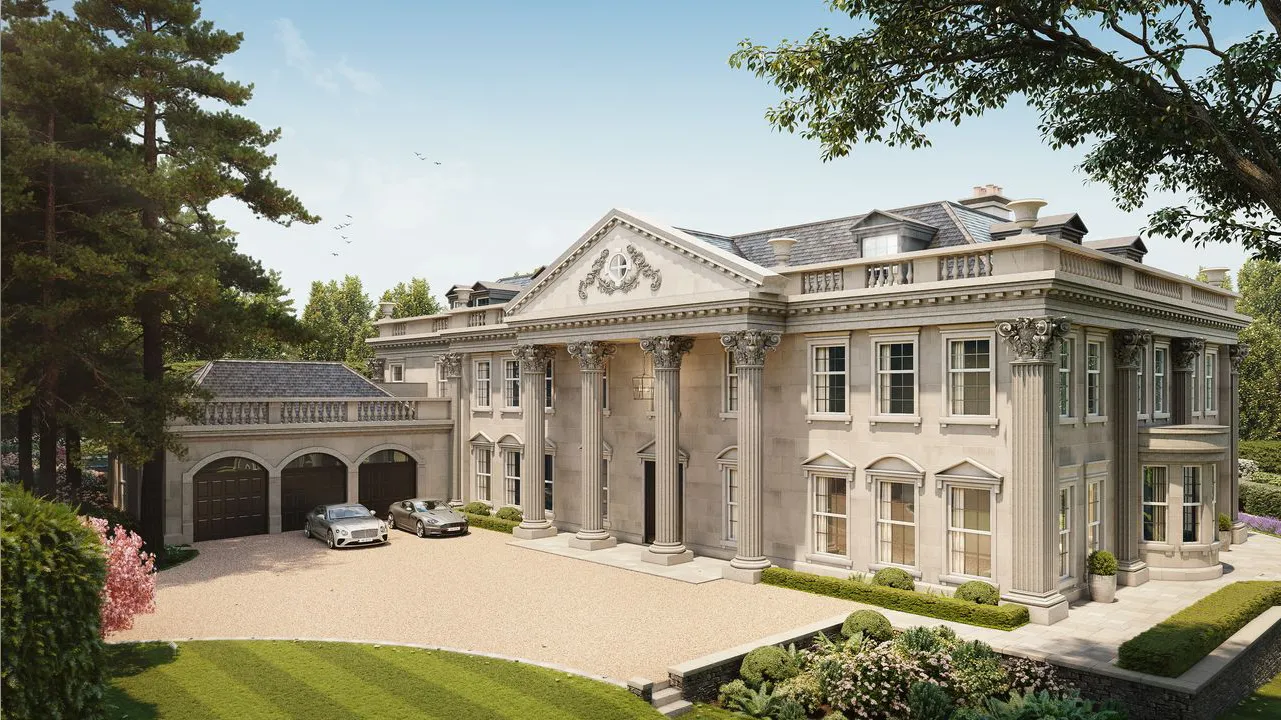A developer in Britain is building the 11-bed monolith in Surrey, southern England. It will feature bullet-proof windows, a swimming pool, cinema, and a bowling alley – all set in a 0.5ha plot.
So far, so good? Well, this house also comes with a non-fungible token, containing the blueprint and virtual version of the property.
The future owner of the Hampton Hall NFT will be able to download the house into a virtual world such as Decentraland or hang it on a digital picture frame on the walls of the real house.
Built on land owned by the Crown Estate, meaning you’ll have to lease it, the house will be 2,700sq of Cotswold stone and Corinthian-fluted columns, and it will feature a 116-meter frontage.

There will be garage space for up to six vehicles, including an elevator to the basement which will host a car gallery, snooker room, and home cinema.
But why are we writing in the future tense, you might ask? Because the house is yet to be built. In fact, the plot has been on the market since March 2020, and work on the house still hasn’t started. Hence the appeal of NFT technology to help market the property.

“While Hampton Hall might be among the first, I believe it certainly won’t be one of the last super-prime properties to be launched as an NFT, as there are several leading agents in the US who are openly working on huge projects,” says Sean Barratt of agents Fine & Country.
“NFTs are a real trend at the moment. We recently sold a $6.6m house in Surrey, a period property that had been extensively renovated and extended.
“The developer asked the buyer whether they’d be interested in buying an NFT of the house for 2% of the purchase price of the physical asset. The buyer said yes, very quickly,” Barratt told The Times.

The house will be close to the towns of Esher, Cobham, and Weybridge, which have independent shops, boutiques, and award-winning restaurants, and is just 20km from London.
Last April, an NFT fan paid $500,000 for a virtual real estate asset. The Toronto-based buyer received 3D clips and files for his acquisition. Krista Kim designed the property, called “Mars House,” during quarantine.
Read full story on BeInCrypto


